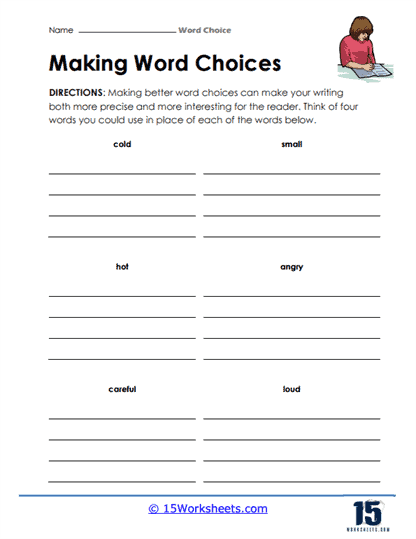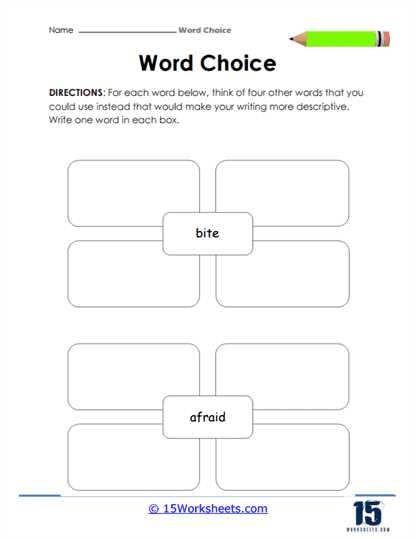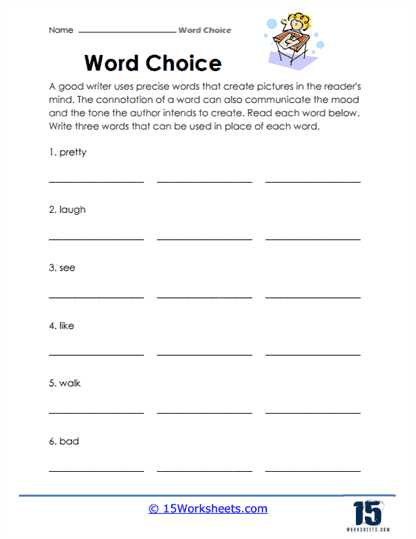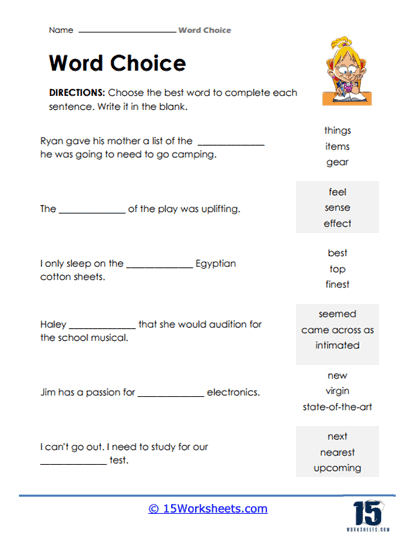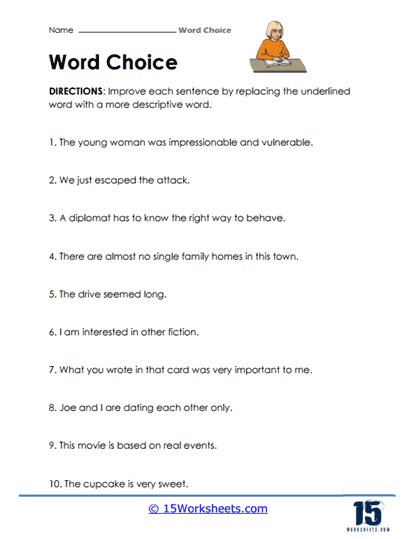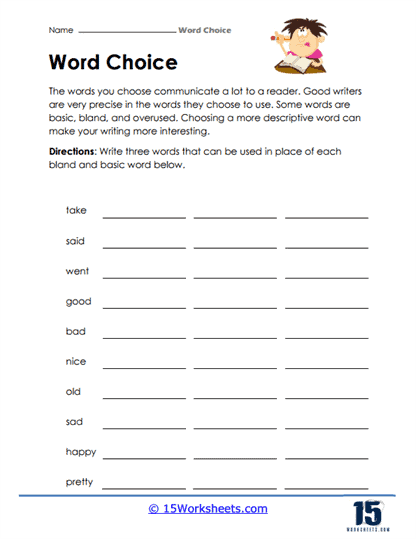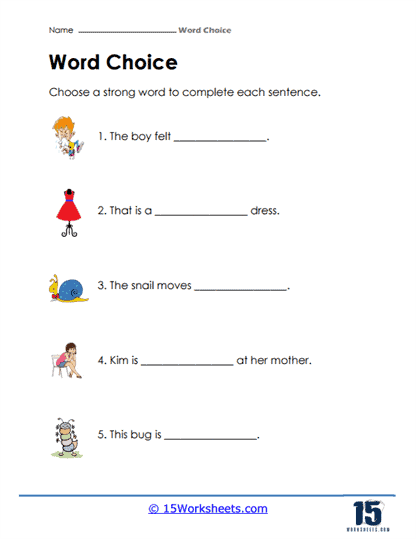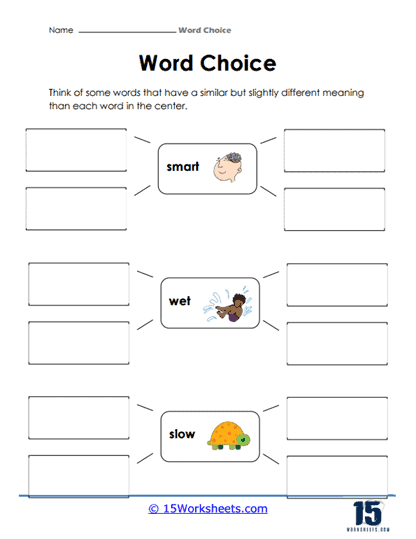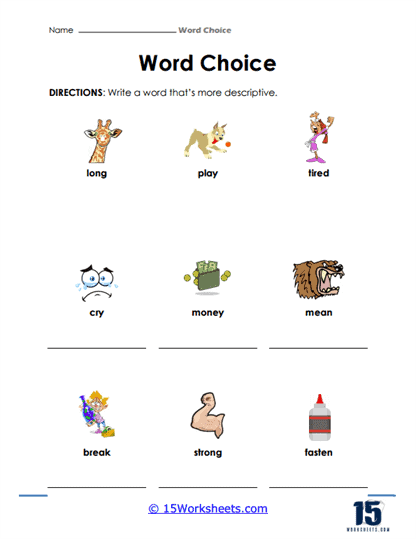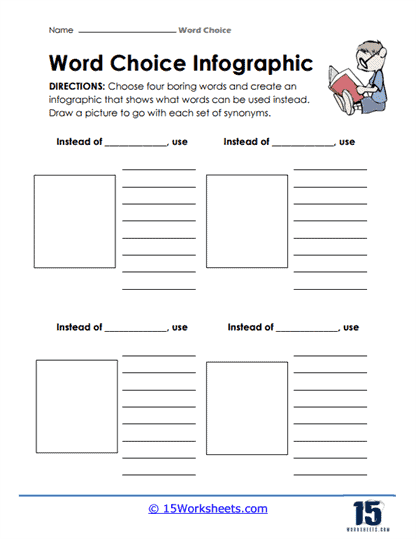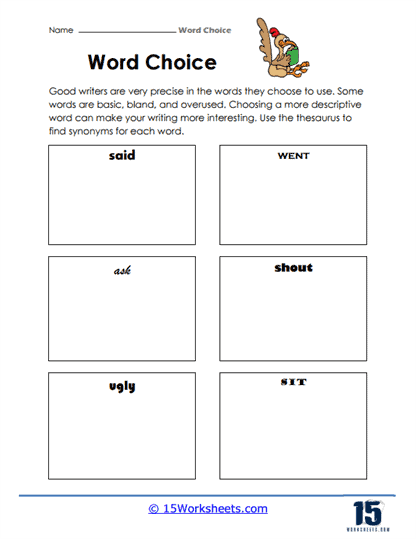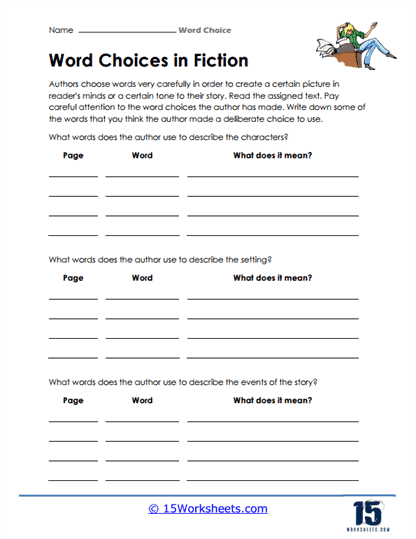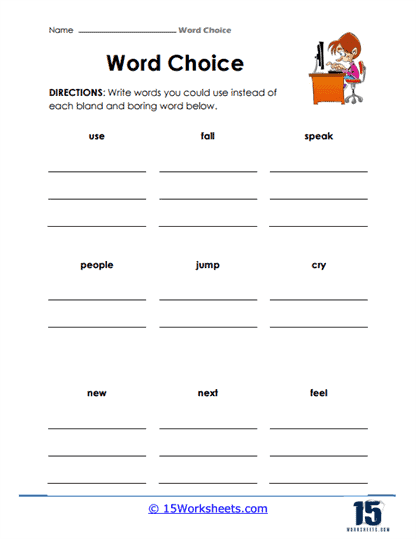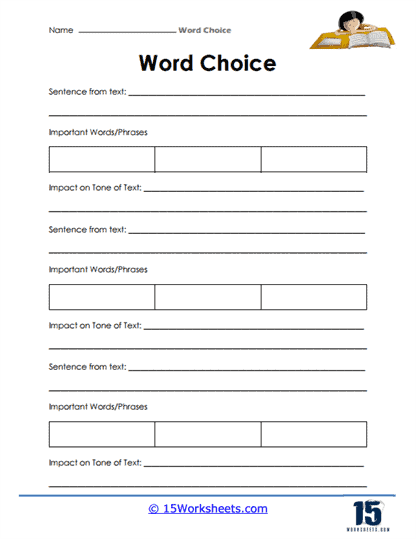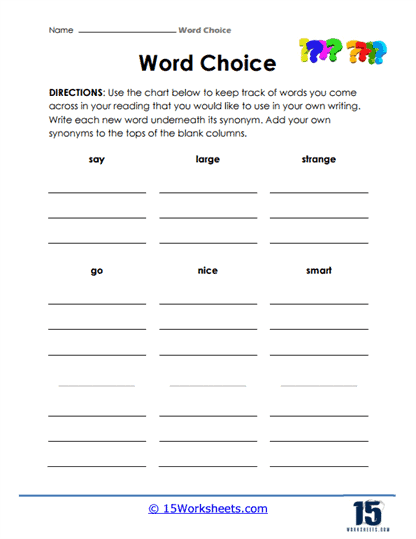Word Choices Worksheets
All About These 15 Worksheets
This series of 15 worksheets is designed to enhance students’ language skills and expand their vocabulary repertoire. The engaging set of exercises in these worksheets aims to empower students to make thoughtful and effective word choices in their speaking and writing.
The series consists of carefully crafted worksheets that cover a wide range of topics, contexts, and skill levels, making it suitable for students across various grade levels and language proficiency levels. Each worksheet presents a unique theme or scenario that prompts students to analyze and think of appropriate words, fostering their understanding of word connotations, nuances, and context-dependent usage.
The worksheets incorporate diverse formats and activities to ensure an interactive learning experience. Through these worksheets, students will:
- Think of other words with similar meanings for a list of different words;
- Fill in the blanks with the most appropriate word choices that best fit the context in sentences to complete them;
- Improve sentences by rewriting them with more descriptive words;
- Create an infographic showcasing their knowledge on descriptive word choices;
- Utilize a thesaurus to come up with synonyms for various words;
- Read an assigned text and take note of the authors’ word choices, and observe how it helps the author convey meaning;
- And understand how word choices impact the tone and meaning in writing and verbal communication.
Overall, this series of worksheets offers educators a valuable resource to supplement their language arts curriculum. With its interactive and varied exercises, these worksheets support students in developing a sophisticated vocabulary, improving their communication skills, and expressing themselves more precisely and effectively in both written and spoken language.
How to Make Better Word Choices In Your Writing
Making better word choices in writing is a crucial skill that can enhance the clarity, precision, and impact of your message. Here are some tips to help you choose the right words for your writing:
Define Your Purpose and Audience
Before choosing your words, clarify your writing goals and the intended audience. The tone, style, and language used will depend on whether you are writing for a general or specialized audience, and what effect you want to achieve (e.g., persuading, informing, entertaining, etc.).
Use Strong Verbs
Verbs are the engines of sentences, and choosing strong, active verbs can make your writing more vivid and engaging. Avoid using weak or passive verbs, such as “is,” “was,” or “has been,” and instead opt for verbs that convey action, emotion, or imagery.
Be Precise
Use specific, concrete words that accurately convey your intended meaning. Avoid vague or abstract terms that can leave your reader guessing or create ambiguity. For example, instead of using the word “thing,” be more specific and use a more precise term, such as “object,” “item,” or “entity.”
Avoid Cliches and Jargon
Cliches and jargon are overused, tired expressions that can detract from the originality and authenticity of your writing. Instead, choose fresh, original language that is free from clichés and jargon, and use technical terms only when necessary and when your audience is familiar with them.
Use Adjectives and Adverbs Sparingly
While descriptive words can add color and depth to your writing, overusing adjectives and adverbs can make your writing appear cluttered or weak. Use these words sparingly and choose only the most precise, vivid, and relevant ones.
Edit and Proofread
After writing your first draft, take the time to review and revise your writing. Check for errors in grammar, spelling, punctuation, and word choice. Make sure each word you choose is necessary, accurate, and adds value to your writing.
In summary, making better word choices in your writing involves being clear, concise, and engaging. Choose words that accurately convey your intended meaning, avoid clichés and jargon, and use strong, precise language to create a vivid and compelling message. With practice and attention to detail, you can improve your writing skills and communicate your ideas with greater effectiveness and impact.

